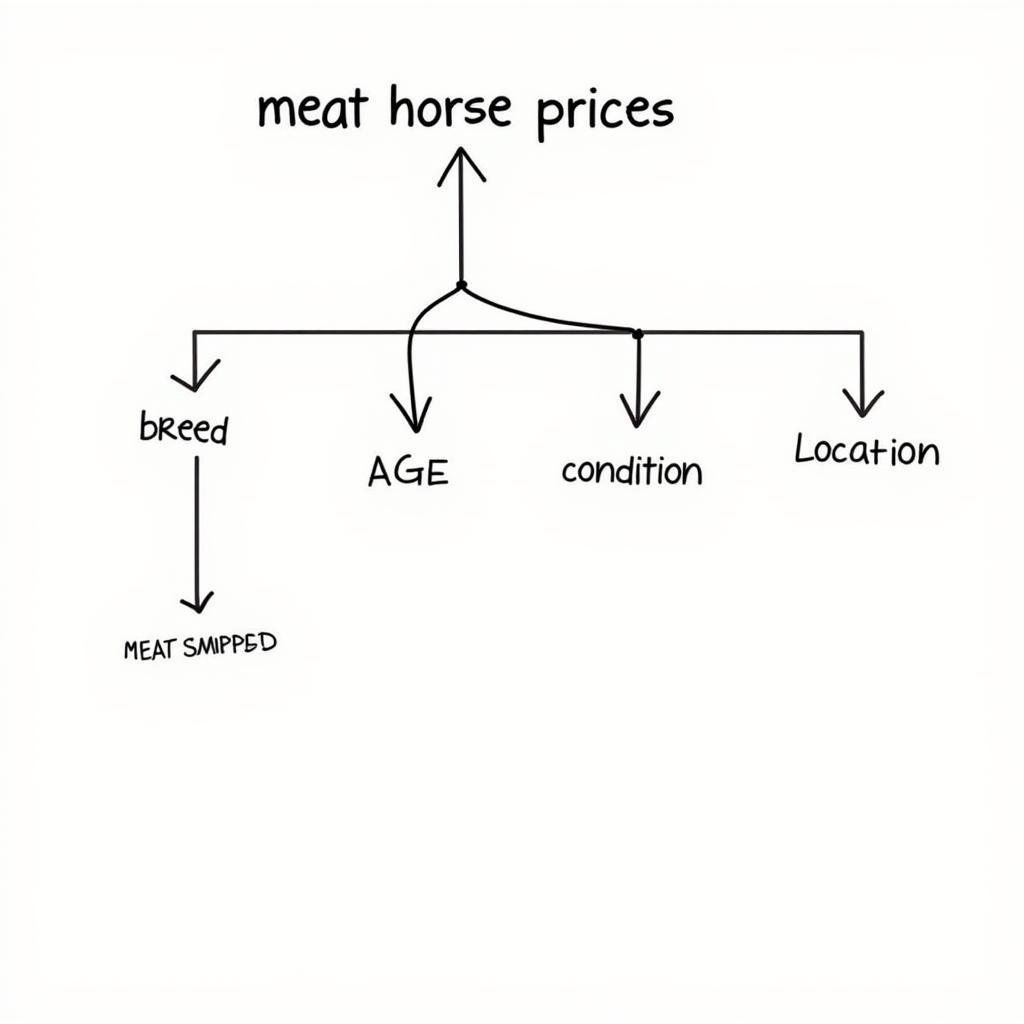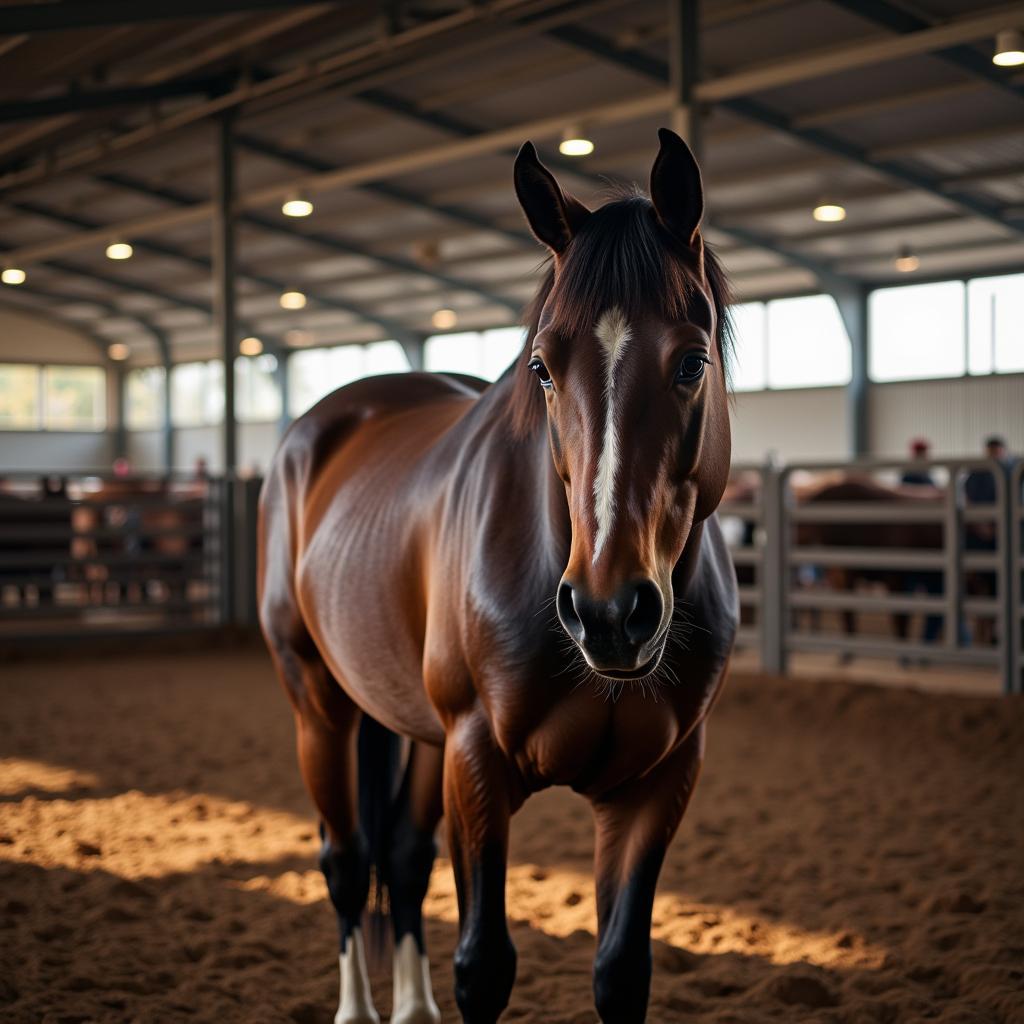The term “Meat Horse Prices” can be jarring for many horse lovers. However, it’s a reality within the equine industry, often referencing horses sold for their meat, primarily for consumption in certain countries. While emotionally charged, understanding the factors influencing these prices and the ethical considerations involved is crucial for informed discussions about horse welfare and responsible ownership.
 Factors Influencing Meat Horse Prices
Factors Influencing Meat Horse Prices
Decoding “Meat Horse Prices”
It’s important to distinguish that “meat horse prices” don’t reflect a standardized market like beef or poultry. Several factors contribute to the price a horse might fetch in this context:
- Breed: Certain breeds, due to their size and musculature, might be perceived as more desirable.
- Age: Younger horses generally command higher prices as they may yield more meat.
- Condition: A horse’s overall health and weight significantly impact its price.
- Location: Geographic location and proximity to processing facilities also play a role.
 Horse at Auction
Horse at Auction
The Ethical Dilemma
The sale of horses for meat is a deeply sensitive issue. Animal welfare advocates often raise concerns about:
- Treatment during transport and slaughter: Ensuring humane treatment throughout the entire process is paramount.
- Lack of transparency: The meat horse trade can be shrouded in secrecy, making it challenging to monitor welfare standards.
- Emotional implications: For many, the thought of horses, often considered companion animals, being slaughtered for meat is distressing.
Responsible Alternatives
Several alternatives to selling a horse for meat prioritize its well-being:
- Rehoming: Finding a loving home where the horse can live out its days should always be the priority.
- Retirement Sanctuaries: Numerous reputable sanctuaries provide a safe haven for horses no longer able to be ridden or worked.
- Euthanasia: In cases of severe injury or illness where a horse’s quality of life is compromised, humane euthanasia by a veterinarian is a compassionate choice.
 Horse Grazing Peacefully in a Field
Horse Grazing Peacefully in a Field
Making Informed Decisions
It’s vital to remember that every horse deserves respect and care. If you’re facing the difficult decision regarding your horse’s future, consider all options carefully and prioritize its welfare. Consult with your veterinarian, reputable equine professionals, and rescue organizations to explore alternatives and make informed, compassionate choices.
For those interested in learning more about horse care and responsible ownership, explore our resources on canvas horse.
Frequently Asked Questions
- Is it legal to slaughter horses for meat in the United States? While federal law doesn’t explicitly prohibit it, there are no USDA-inspected horse slaughterhouses operating in the US.
- What happens to horses that are no longer wanted? Sadly, some end up in the meat trade. However, many find new homes, retire to sanctuaries, or are humanely euthanized.
- How can I help horses in need? Support reputable rescue organizations, volunteer your time, or spread awareness about responsible horse ownership.
If you require support or have questions, please contact us at Phone Number: 0772127271, Email: [email protected] Or visit us at QGM2+WX2, Vị Trung, Vị Thuỷ, Hậu Giang, Việt Nam. We have a 24/7 customer support team.